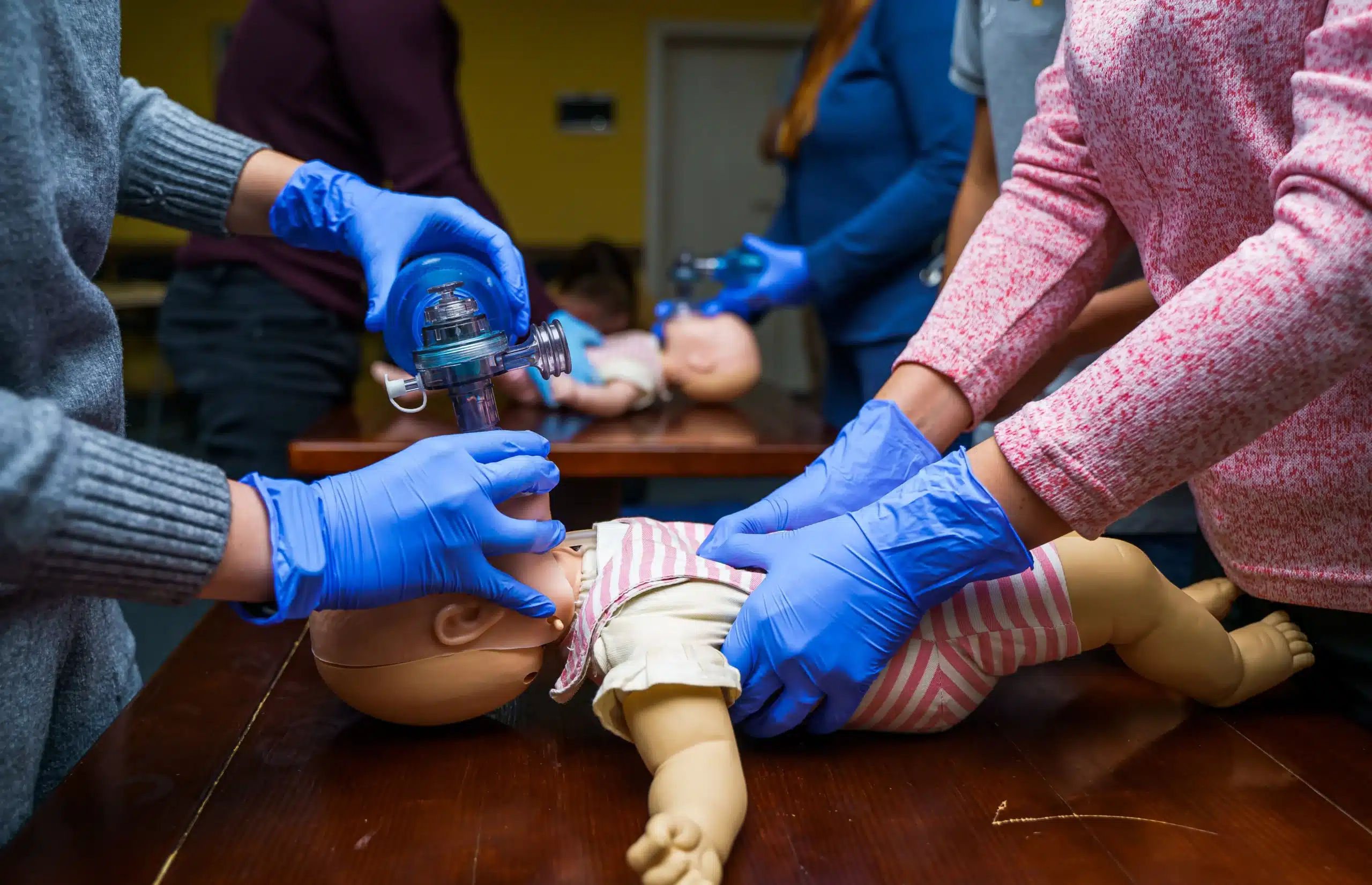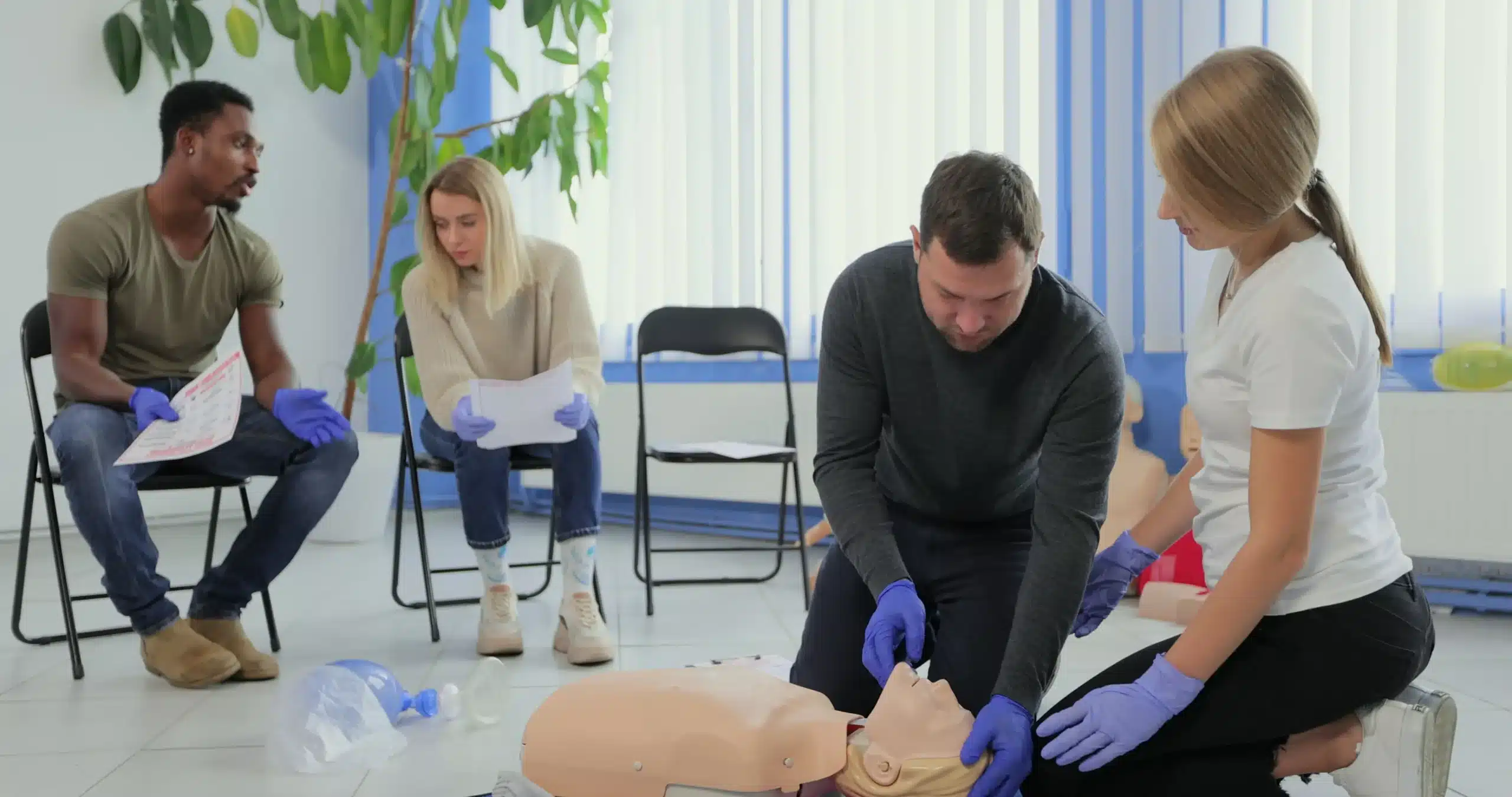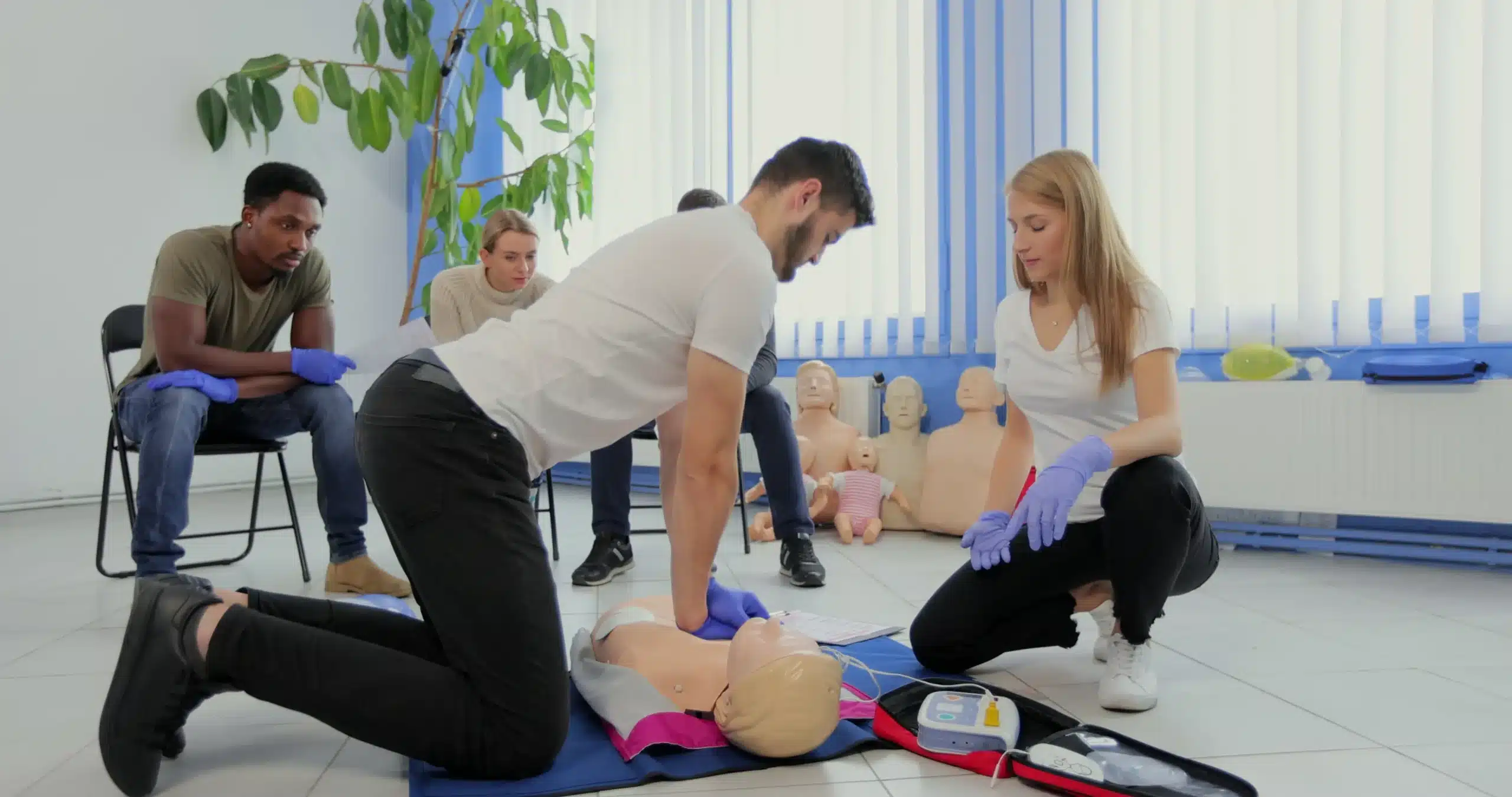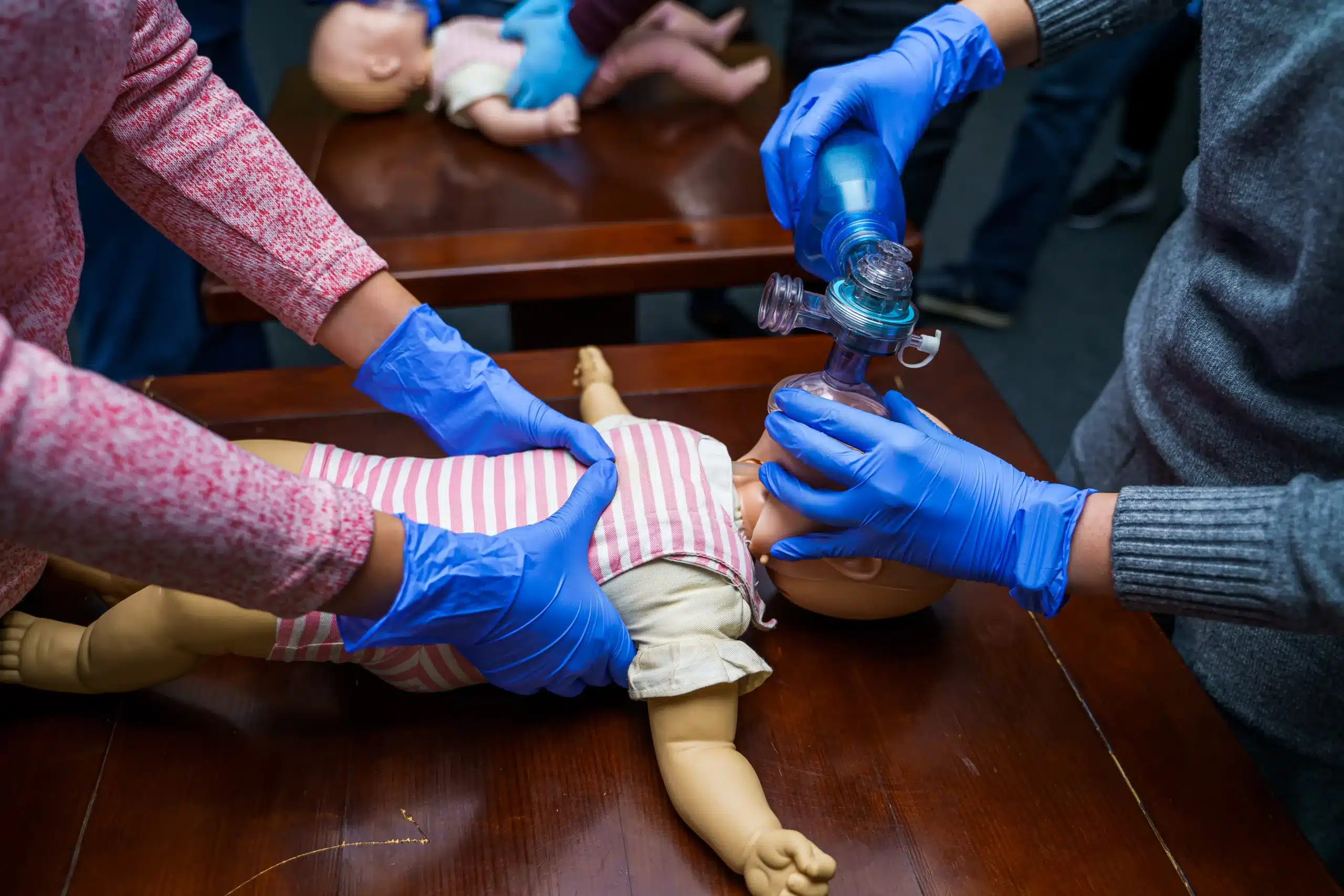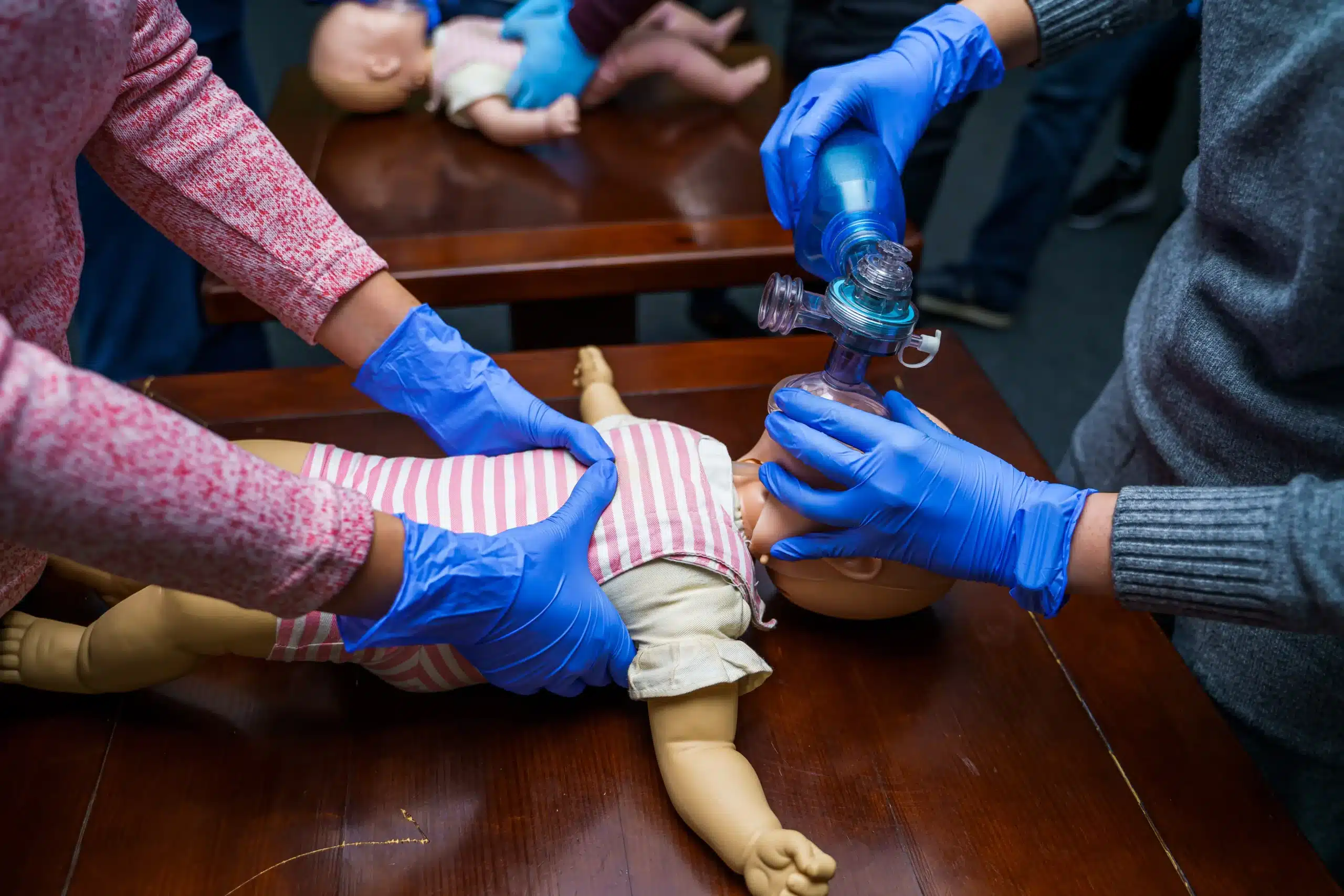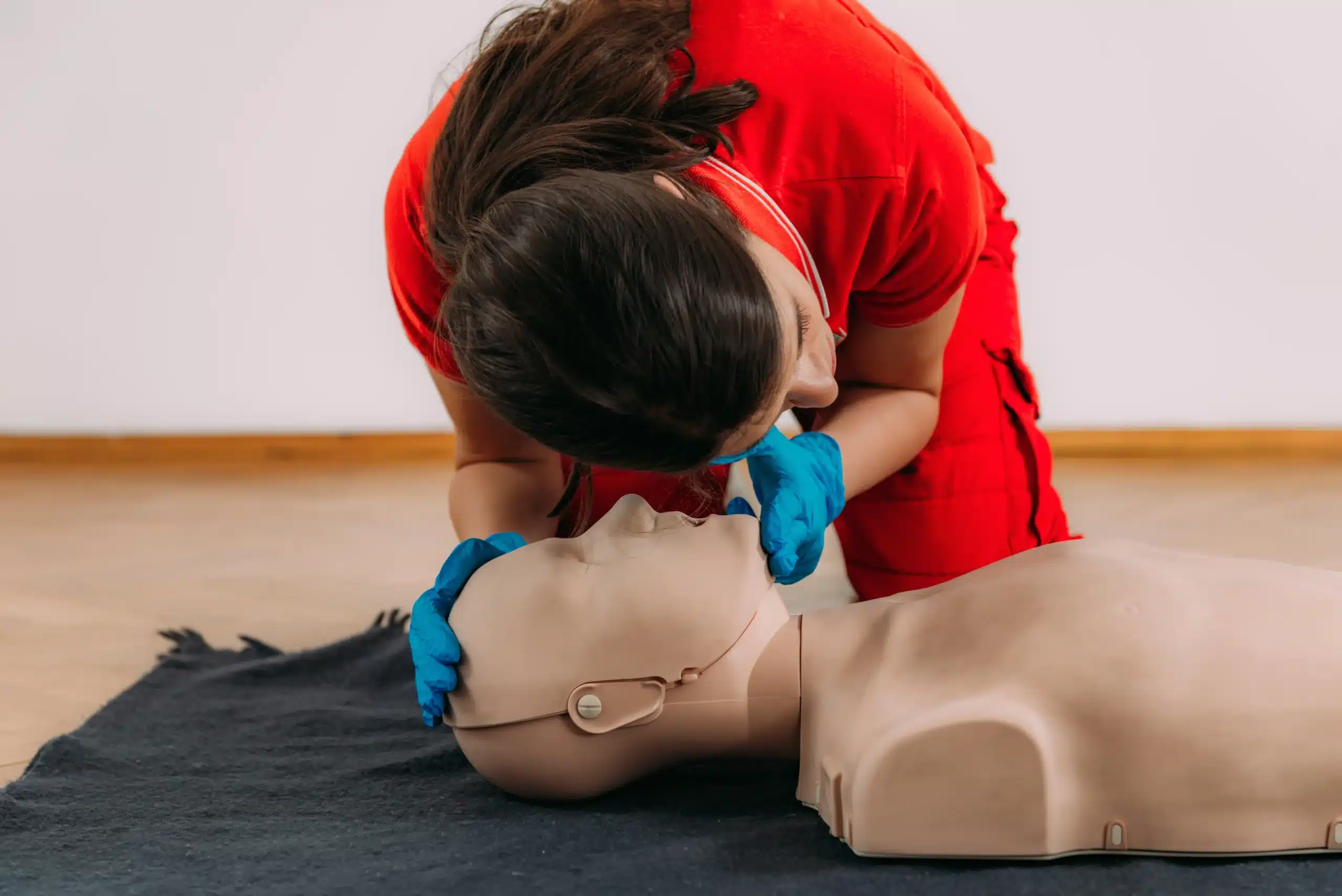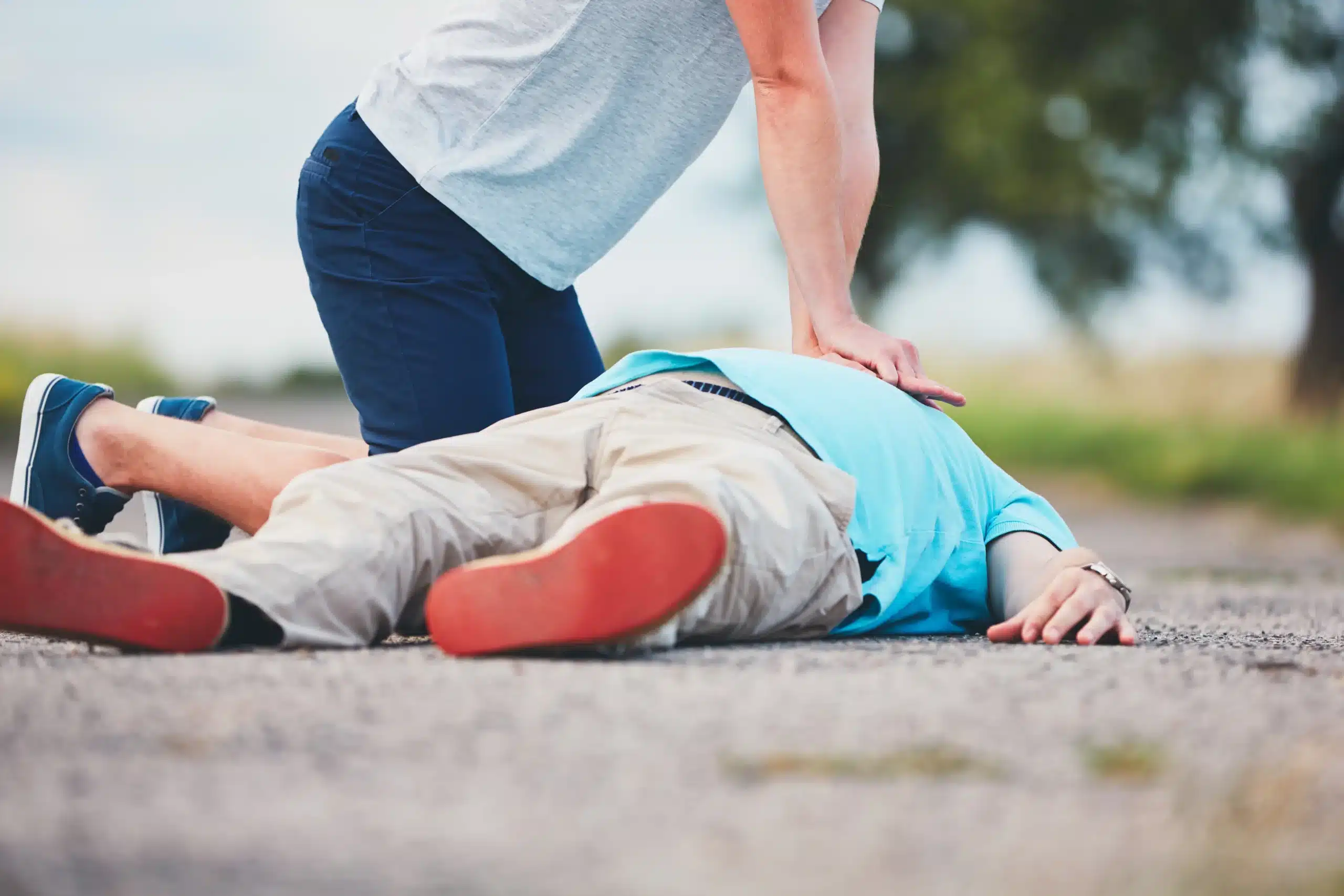Working in healthcare, we know how quickly things can change. New guidelines, updated procedures—it’s a lot to keep up with. One thing that should never lapse? Your BLS certification. It’s the bedrock of patient care in critical situations. Whether you’re a seasoned professional or just starting out, this guide will walk you through everything you need to know about BLS renewal, including finding “bls renewal near me” options that fit your busy schedule. We’ll cover the essentials, from understanding the importance of renewal to finding the right course and staying up-to-date on the latest life-saving techniques.
Key Takeaways
- Regular BLS renewal keeps your life-saving skills current. Choose a course format—online or in-person—that fits your learning style and schedule. Providers like Merced CPR Classes offer various options to meet your needs.
- Select a reputable BLS renewal provider. Look for AHA accreditation, qualified instructors, and comprehensive course materials. Consider factors like cost, discounts (like those offered by Merced CPR Classes), and scheduling flexibility.
- Prepare for your course and maintain your skills long-term. Reviewing materials beforehand and practicing regularly, even after renewal, ensures you’re always ready to respond effectively in an emergency. Resources like those offered by Merced CPR Classes can help you stay prepared.
What is BLS Renewal & Why is it Important?
BLS renewal keeps your life-saving skills sharp. It’s how healthcare providers, and others who respond to emergencies, refresh their knowledge and stay current on the latest techniques. Your BLS certification is typically valid for two years. After that, you’ll need a renewal course to maintain your credentials. This ensures you’re always prepared to provide high-quality care, which is often a job requirement in many healthcare settings. Organizations like the American Heart Association (AHA) establish these guidelines, and the renewal process keeps you aligned with their recommendations. Staying current with these practices can truly make a difference in emergency situations.
Find BLS Renewal Courses Near You
So, you’re ready to renew your BLS certification—great! Finding the right course is the first step. Let’s break down your options.
Online vs. In-Person
One of the first decisions you’ll make is whether to pursue online or in-person BLS renewal. Both have their perks. Online renewal offers flexibility, allowing you to learn at your own pace and on your own time. This can be incredibly helpful for busy professionals or those with demanding schedules. In-person classes, on the other hand, provide hands-on practice and direct interaction with an instructor. This can be beneficial for those who prefer a more interactive learning environment or want personalized feedback. Consider your learning style and what works best for you. Renewal can be done online or in-person up to 30 days after your BLS certification expires, but after 60 days, you’ll need to take the full course again. The renewal process typically involves choosing your course format, completing the coursework, passing an exam, and receiving your updated certification card. You can find more information on BLS renewal through resources like Save A Life CPR’s guide on BLS renewal.
Local Providers
Once you’ve decided on your preferred format, it’s time to find a provider near you. Here are a few places to start your search:
Merced CPR Classes
If you’re in the Merced, Turlock, or Atwater area, Merced CPR Classes offers AHA-certified BLS renewal courses. They focus on practical skills and provide a supportive learning environment. You can explore their website for more information on their BLS course options. They also offer other certifications like ACLS, PALS, and First Aid, making it a convenient option if you need to renew multiple certifications.
American Heart Association
The American Heart Association (AHA) is a leading provider of CPR and BLS training. Check their website for a list of certified training centers in your area offering BLS renewal courses. Their courses cover the latest protocols and techniques, ensuring you’re up-to-date on best practices for delivering high-quality CPR.
American Red Cross
The American Red Cross also offers BLS renewal and recertification courses. Their courses are designed to refresh your skills and extend your certification for two years. You can search for courses on their website and filter by location and course type.
Local Hospitals & Medical Centers
Many hospitals and medical centers offer BLS certification and renewal courses for their staff and the surrounding community. Check with hospitals or clinics near you to see if they offer BLS renewal training. This can be a convenient option if you work in healthcare or live near a medical facility. CPR AED Course has a helpful article on finding local BLS certification providers.
Community Colleges
Community colleges often offer BLS certification as part of their health sciences programs. These courses are generally open to the public and can be a more affordable option than some private training centers. Interview Prep offers insights into BLS certification processes, including information about community college programs. Contact your local community college to inquire about BLS renewal courses.
How Much Does BLS Renewal Cost?
Knowing the price range for BLS renewal helps you budget and compare training options. Several factors influence the overall cost, so let’s break them down.
Average Price Range
Typically, BLS renewal costs between $12 and $50. This price difference depends on factors like your chosen training provider, whether you choose an online, in-person, or blended learning course format, and included materials. It’s always a good idea to check with various providers like Merced CPR Classes for their most up-to-date pricing.
Additional Fees
Keep an eye out for potential extra costs. Some providers might charge separately for course materials, online access, or certification card processing. Merced CPR Classes’ low price guarantee helps minimize these surprises. Transparency in pricing is key when choosing your BLS renewal provider.
Group Discounts & Promotions
If you’re renewing with colleagues or friends, explore group discounts. Many training centers, including Merced CPR Classes, offer reduced rates for group registrations. This can be a smart way to save money while learning alongside others. Also, check if your employer offers discounts or reimbursements for professional development courses like BLS renewal. These opportunities can make essential training more accessible.
What to Expect in Your BLS Renewal Course
So, you’re ready to renew your BLS certification—smart move! It’s essential to keep these life-saving skills sharp. Here’s a rundown of what you can expect during your BLS renewal course:
Course Duration & Format
BLS renewal courses are designed to be efficient, recognizing that healthcare professionals have demanding schedules. You can expect the course to take approximately three hours. This includes hands-on skills practice and testing, ensuring you’re confident and competent. Many providers offer various course formats, including in-person and blended learning options (partially online, partially in-person), so you can choose what works best for your schedule and learning style. Check with your chosen provider, like Merced CPR Classes, to see what they offer.
Key Topics & Skills
BLS renewal courses cover the core skills needed to respond to life-threatening emergencies. You’ll review and practice essential procedures such as high-quality CPR for adults, children, and infants, how to use an AED (automated external defibrillator), and effective airway management techniques. The course also emphasizes the importance of teamwork and communication during emergencies. The American Heart Association provides detailed information on BLS course content.
Skills Assessment
To ensure you’re truly ready to respond to an emergency, BLS renewal involves both a written exam and a skills evaluation. The written exam tests your knowledge of key concepts and procedures, while the skills evaluation allows you to demonstrate your proficiency in performing CPR, using an AED, and other critical skills. The goal is to confirm your competence. Reviewing the materials beforehand can help you feel prepared. Merced CPR Classes offers resources to help you brush up on key concepts.
Certification Process
Once you’ve successfully completed the course requirements, including the written exam and skills check, you’ll receive your updated BLS certification card. This card is proof of your renewed skills and is typically valid for two years. The process is straightforward, and your provider will guide you through the steps. For a smooth renewal, make sure you understand the process outlined by your chosen training center. You can find more information on the BLS recertification process from various providers.
Choose the Right BLS Renewal Provider
Finding the right BLS renewal provider is key to a smooth and valuable recertification experience. Here’s what to consider:
Accreditation & Recognition
First things first, make sure your course is accredited by a recognized organization like the American Heart Association (AHA). AHA-accredited BLS CPR classes cover updated protocols for high-quality CPR and AED use, crucial skills for community health and safety. This accreditation ensures your certification is widely accepted.
Instructor Qualifications
Don’t overlook the importance of qualified instructors. Look for providers with certified instructors who have a solid background teaching BLS. Merced CPR Classes emphasizes the importance of experienced instructors. Consider factors like the course format (in-person vs. blended learning), overall cost, any available discounts, and the provider’s reputation.
Course Materials & Resources
While cost is always a factor, remember that quality training is an investment. Understanding associated costs is important. Renewal fees typically range from $12 to $50, depending on the provider, materials, and location, as discussed by Leak Bio. If your employer covers recertification, confirm their preferred providers and any reimbursement processes.
Scheduling Options
Finally, think about your schedule. Providers like Bay Area CPR offer flexible scheduling options, sometimes running courses seven days a week. Choose a provider that fits your availability, whether you prefer weekday evenings, weekends, or even intensive one-day courses. Convenient scheduling makes renewal much easier.
Prerequisites & Common Misconceptions
Before signing up for a BLS renewal course, it’s helpful to understand the requirements and address any questions you might have. Let’s clear up a few common misconceptions about BLS certification and renewal.
Current or Expired Certification
You’ll need a current or recently expired American Heart Association BLS Provider certification to take a renewal course. If your card is over 30 days past its expiration date, you’ll need to take the full BLS course instead. Check with your chosen provider to confirm their specific policy.
Renewal Eligibility
AHA BLS certifications are valid for two years. You’re eligible to take a renewal course up to 30 days after your certification expires. After 60 days, you’ll have to retake the full BLS course. This two-year renewal cycle ensures providers stay current with the latest life-saving techniques.
Debunking BLS Renewal Myths
There are a few common myths surrounding BLS certification and renewal. One is that it’s only for doctors and nurses. In reality, BLS training is valuable for various professions, including teachers, coaches, lifeguards, and other roles involving public safety. Another myth is that BLS certification is a one-time requirement. Regular renewal is essential to maintain your skills and ensure you’re prepared to respond effectively in an emergency. Staying current is key, even if you’ve held your BLS certification for years.
Make the Most of Your BLS Renewal
Getting ready for your BLS renewal? Smart move. Staying current with your certification is essential for any healthcare provider, and frankly, anyone who wants to be prepared for an emergency. Here’s how to make the most of your BLS renewal, from preparation to long-term skill maintenance.
Prepare for Your Course
Before you even sign up, take some time to research different BLS renewal courses. Think about what works best for your schedule. Do you prefer a blended learning format or a traditional in-person class? Consider the cost, look for available discounts (especially if you’re renewing with a group), and check the provider’s reputation. Merced CPR Classes offers a low price guarantee, so you know you’re getting a great deal. Reviewing the course material beforehand can also be incredibly helpful.
Overcome Renewal Barriers
One of the biggest mistakes people make is assuming their renewal will be a breeze. Don’t let your skills get rusty. Reviewing the material, especially if it’s been a while since your last certification, is key. BLS guidelines can change, and you don’t want to be caught off guard during the exam. Life gets busy, but prioritize scheduling your renewal before your certification lapses.
Maintain Your Skills
Your BLS renewal course covers essential life-saving skills, including using an AED, basic airway management, and helping someone who is choking. These aren’t things you want to only remember during a test. Practice these skills regularly, even after you’ve renewed your certification. Consider refreshing your knowledge with short videos or quick reviews of the course materials. The more familiar you are with these procedures, the more confident and effective you’ll be in a real emergency. Think of it like this: regular practice turns those life-saving steps into second nature.
Related Articles
- BLS Renewal in Atwater: Your Complete Guide – Merced CPR Classes
- BLS Courses in Atwater: Your Guide – Merced CPR Classes
- BLS Certification in Atwater: Your Guide – Merced CPR Classes
- BLS Training in Turlock: Your Complete Guide – Merced CPR Classes
- BLS for Healthcare Providers in Atwater: A Practical Guide – Merced CPR Classes
Frequently Asked Questions
How long is my BLS certification valid? Your BLS certification is typically valid for two years. It’s important to renew it before it expires to maintain your credentials and stay up-to-date on the latest life-saving techniques. You can renew up to 30 days after the expiration date, but after 60 days, you’ll need to retake the full BLS course.
What’s the difference between online and in-person BLS renewal? Online BLS renewal offers flexibility, allowing you to learn at your own pace and from anywhere. In-person classes provide a more interactive experience with hands-on practice and direct interaction with an instructor. Both options fulfill the requirements for renewal, so choose the format that best suits your learning style and schedule.
Where can I find BLS renewal courses near me? Several organizations offer BLS renewal courses, including the American Heart Association, the American Red Cross, local hospitals and medical centers, and community colleges. You can also find certified training centers like Merced CPR Classes that offer convenient and affordable options. Check their websites or contact them directly to find a course in your area.
What if my BLS certification has already expired? If your BLS certification is within 30 days of its expiration date, you can still take a renewal course. However, if it has been more than 60 days since your certification expired, you’ll need to retake the full BLS course rather than the shorter renewal course.
How can I prepare for my BLS renewal course? Reviewing the course materials beforehand, especially if it’s been a while since your last certification, can significantly help you prepare. Familiarize yourself with the latest BLS guidelines and practice essential skills like CPR and AED use. Many providers offer resources to help you brush up on key concepts before the course.
